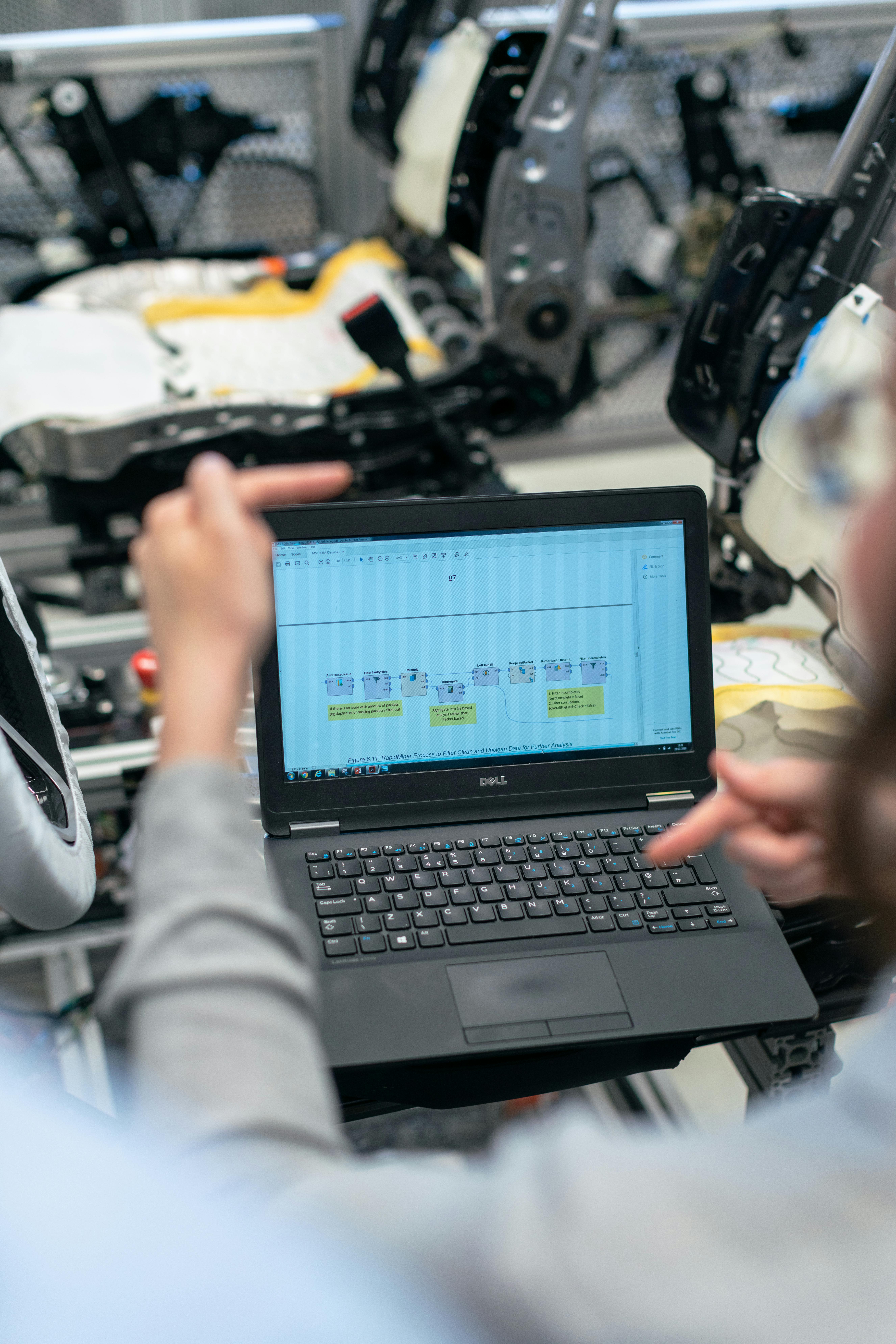
Comprehensive Machine Learning Engineer Training
Three specialized programs covering mathematical foundations, deep learning architectures, and production deployment systems.
Back to HomeOur Training Methodology
Our course structure reflects the reality that effective machine learning engineering requires integration of multiple skill areas. Each program is designed to build specific capabilities while maintaining connections to the broader ML engineering workflow. Programs can be taken individually based on your needs or combined for comprehensive skill development.
The mathematical foundations course establishes the theoretical base necessary for understanding how algorithms work internally. Deep learning focuses on modern neural network architectures and their implementation. MLOps addresses the production deployment and operational aspects that determine whether models succeed in real environments. Together, these programs provide complete preparation for ML engineering roles.
Each course emphasizes hands-on implementation alongside theoretical understanding. Students write code, debug issues, optimize performance, and work through challenges representative of actual ML engineering work. Projects use real datasets and address problems requiring the same considerations as production systems including data quality, computational constraints, and performance requirements.
Class sizes remain small to enable personalized attention and detailed feedback. Instructors bring production ML experience and provide context about when different techniques are appropriate, common pitfalls to avoid, and practical tradeoffs that arise in real projects. The learning environment emphasizes collaborative problem-solving while developing individual technical capabilities.
Course Programs
Detailed information about each training program including curriculum, duration, and focus areas
Mathematical Foundations for Machine Learning
Strengthen your mathematical foundation essential for understanding machine learning algorithms. Cover linear algebra, calculus, probability theory, and optimization techniques. Learn to implement mathematical concepts in Python using NumPy and SciPy.
Core Topics
- Linear algebra operations including matrix decompositions, eigenvalues, and SVD
- Multivariate calculus with focus on gradients, Jacobians, and chain rule
- Probability distributions, expectation, variance, and maximum likelihood
- Optimization methods including gradient descent variants and convergence
Learning Outcomes
Students develop ability to understand ML algorithm mathematics, implement operations efficiently, debug numerical issues, and make informed decisions about algorithm selection based on mathematical properties.

Deep Learning & Neural Network Engineering
Master the design, implementation, and optimization of deep neural networks. Build expertise in CNN, RNN, LSTM, and Transformer architectures using TensorFlow and PyTorch. Learn advanced techniques including transfer learning, fine-tuning, and model compression.
Core Topics
- Neural network fundamentals including backpropagation and activation functions
- Convolutional networks for computer vision with architecture design patterns
- Recurrent networks, LSTMs, and attention mechanisms for sequence modeling
- Transformer architectures and their application to NLP and other domains
Learning Outcomes
Students gain proficiency implementing custom architectures, training strategies, hyperparameter optimization, and deploying models for computer vision, NLP, and generative tasks using production frameworks.

MLOps & Production Machine Learning Systems
Learn to deploy, monitor, and maintain machine learning systems at scale. Master containerization with Docker, orchestration with Kubernetes, and ML pipelines with Kubeflow. Understand model versioning, A/B testing, and continuous integration for ML.
Core Topics
- Containerization with Docker and orchestration using Kubernetes clusters
- ML pipeline construction with Kubeflow and workflow automation
- Model monitoring, drift detection, and automated retraining systems
- Cloud platform integration with AWS, Google Cloud, and Azure ML services
Learning Outcomes
Students develop capability to design and implement production ML infrastructure, handle deployment pipelines, monitor system health, and maintain models in live environments serving real traffic.

Course Comparison
Understanding which program aligns with your current skills and development goals
| Feature | Mathematical Foundations |
Deep Learning & Neural Networks |
MLOps & Production Systems |
|---|---|---|---|
| Duration | 14 weeks | 18 weeks | 12 weeks |
| Investment | €1,950 | €3,150 | €2,350 |
| Prerequisites | Programming experience | Python & basic ML knowledge | ML model training experience |
| Primary Focus | Mathematical theory | Neural architectures | Production deployment |
| Coding Intensity | Moderate | High | High |
| Project Hours | ~100 hours | ~150 hours | ~120 hours |
| Best For | Building theoretical foundation | Deep learning specialization | Production ML roles |
Selection Guidance
Choose Mathematical Foundations if you need to strengthen core concepts before advancing to specialized topics. This course provides the theoretical base for understanding how algorithms work internally and makes advanced material more accessible.
Select Deep Learning if you have solid fundamentals and want to specialize in neural network architectures. This program requires comfort with Python and basic ML concepts but builds comprehensive expertise in modern deep learning approaches.
Pick MLOps if you can train models but need production deployment skills. This course addresses the operational aspects of ML systems including infrastructure, monitoring, and maintenance that determine real-world success.
Learning Infrastructure and Tools
Development Environment
Students work with professional development tools including Git for version control, Jupyter notebooks for exploration, and IDEs like VS Code or PyCharm for production code. We emphasize proper software engineering practices including testing, documentation, and code review workflows.
Cloud compute resources are provided for training larger models. Students gain experience with GPU acceleration, distributed training, and managing computational resources efficiently. Access to cloud platforms enables work on realistic projects without requiring expensive local hardware.
Frameworks and Libraries
Core instruction uses TensorFlow and PyTorch, the dominant frameworks in production ML systems. Students learn both to understand different design philosophies and be prepared for varied workplace environments. We also cover scikit-learn, NumPy, Pandas, and other essential tools in the ML ecosystem.
For MLOps work, students use Docker for containerization, Kubernetes for orchestration, and Kubeflow for pipeline management. Integration with AWS SageMaker, Google Vertex AI, and Azure ML provides exposure to major cloud ML platforms and their specific capabilities.
Datasets and Projects
Project work uses publicly available datasets representative of real ML problems including image classification, text analysis, time series forecasting, and recommendation systems. Students learn to handle data quality issues, class imbalance, missing values, and other challenges common in production work.
Final projects allow students to work on problems aligned with their interests or professional needs. These capstone implementations demonstrate capability across the full ML workflow from data preparation through model deployment and serve as portfolio pieces for career discussions.
Program Combinations
Structured learning paths for comprehensive ML engineering capability development
Mathematical Foundations + Deep Learning
Ideal for those starting their ML journey. Build mathematical understanding then apply it to modern neural architectures. This combination provides comprehensive theoretical and practical preparation for ML engineering work.
Deep Learning + MLOps
Perfect for those with mathematical background ready to focus on implementation and deployment. Covers modern architectures through production systems, preparing for end-to-end ML engineering responsibilities.
All Three Programs
Most comprehensive preparation spanning foundations through production deployment. Develops complete skillset for senior ML engineering roles requiring both deep technical knowledge and operational expertise.
Programs can be taken sequentially or with gaps between based on your schedule and learning pace. Combined program pricing reflects individual course rates.
Ready to Begin Your Training?
Connect with us to discuss your background, goals, and which program or combination best supports your professional development path.